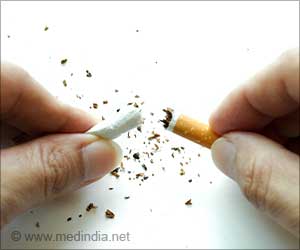Watching her five-year-old daughter at play fills Katrina Wilson with guilt instead of motherly pride -- the slight frame a daily reminder of her heavy drinking while pregnant.
Watching her five-year-old daughter at play fills Katrina Wilson with guilt instead of motherly pride -- the slight frame a daily reminder of her heavy drinking while pregnant.
And if life was not hard enough in the poverty-stricken South African town of De Aar, Wilson has to battle with the knowledge that she condemned her own flesh and blood to brain damage and an uncertain future.The girl is one of hundreds diagnosed with Foetal Alcohol Syndrome (FAS) in the dustbowl town with its 30,000-odd residents and the unenviable distinction of the world's highest reported incidence of the condition.
"It was a shock when the doctors told me I had caused my baby harm. I felt terrible," Wilson reflected at her bare home in the semi-arid, mostly rural Northern Cape province -- where alcohol abuse is a way of life, a means of escaping the daily reality of poverty and misery.
The now defunct "dop system" whereby farmworkers were paid part of their wages in alcohol has left many dependent on drink. Though "dop" payments were banned in the 1920s, the system carried on in many rural zones until apartheid ended in 1994.
The erstwhile phenomenon of males-only mining hostels also contributed to a boozing culture in the province.
De Aar resident Valerie Farland, herself a former heavy drinker, believes alcohol's grip on the community will be hard to loosen.
Advertisement
"Mothers give their children beer when they are hungry. People will pry their children's bread money out of their hands for drink."
Advertisement
"She really battled to put on weight. She's much smaller than my other two children and the sickliest. Her brain works slower. She is in hospital a lot."
Research conducted in 2000 put the incidence of FAS in De Aar at 12 percent of the town's residents, some 80 percent of whom are unemployed and poor.
Leana Olivier, national manager of the South African Foundation for Alcohol Related Research (FARR) which runs awareness programmes in several Northern Cape communities, said children with FAS typically had an IQ of between 65 and 75, well below the average of 100.
They displayed severe behavioural problems, were hyperactive, sickly, and generally experienced a 10 percent stunting in growth.
The children were often overly affectionate to make up for not being accepted socially, and many girls became pregnant at a young age, said Olivier.
Some 25,000 FAS children are born in South Africa every year.
Magdalena Rooi, a community worker in De Aar, is foster mother to a 16-year old FAS girl who causes her many a sleepless night.
"She makes no progress at school," said Rooi. "She often comes home in the wee hours of the morning and she does not listen to me. She has no attention span to speak of.
"It is very hard. Other people don't understand how difficult it is for these children. I see no future for her."
Wilson, who said she stopped drinking six months ago, claims to have been unaware of the dangers of consuming alcohol while pregnant, and now warns others not to repeat her mistake.
A pregnant woman need not be an alcoholic or even a heavy drinker for her child to develop FAS, and FARR seeks to promote the concept that not a single drink is safe.
But for community workers like Sylvia Swarts it can seem an uphill battle, with children as young as seven falling victim to the drinking culture while many a mother spends her welfare money on alcohol.
"For people in these circumstances alcohol is a stress reliever," Swarts explains.
And with home-brewed beer available from only 50 cents (around seven US cents, four euro cents) a mug at any of the dozens of illegal outlets that dot South Africa's poorest neighbourhoods, relief is cheap and readily available.
"Alcohol makes you feel better, not so worried," says 41-year-old Elsie Esel, whose six-year-old daughter has also been diagnosed with FAS.
"I am worried for my daughter's future. And I am trying to warn others, but they won't listen. Around here, you see pregnant women drinking all the time."
De Aar is not the only Northern Cape town in alcohol's grip.
Visiting Upington on a weekday afternoon, one finds about 40 people in one of the many taverns, huddling among dozens of outsized bottles of beer.
Farmworkers confess to spending most of their meagre monthly wages on booze, and many a violent crime is committed in drunken bravado.
At most liquor stores, you can buy a plastic bottle of dry white wine for 11 rand (about 1.55 dollars) and a five litre foil bag of the same for under 50 rand.
Wilson's wish is for people to realise the dangers of alcohol without having to learn the hard way.
"If I only had known."
Source-AFP
VEN /J











